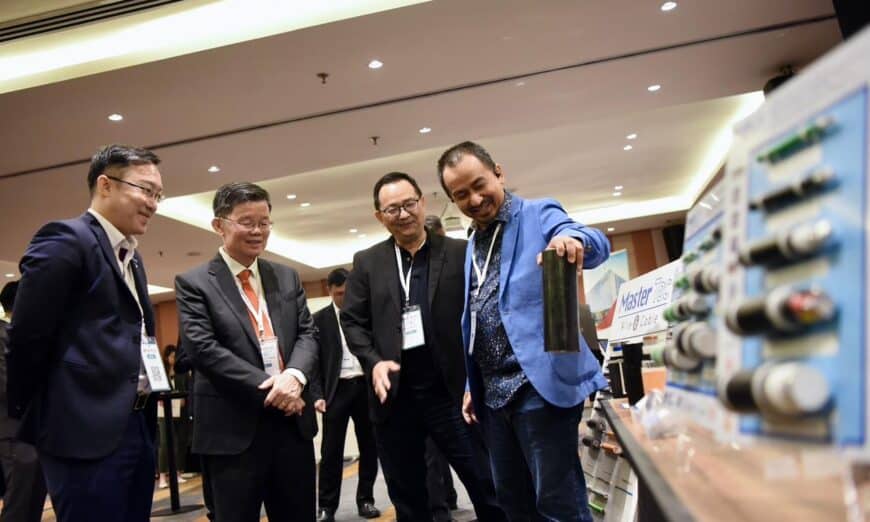ENERGY transition is becoming one of our country’s key agendas and several advantages put us in the driving seat to fully harness the abundant resources available to us.
The global community is increasingly turning to renewable energy resources, with solar power leading this transformation.
As a state that has seen rapid industrial growth for several decades now, Penang is poised to lead the charge toward a renewable energy future within the region, supported by its sustainability agenda, policies, and vision to thrive.
According to Malaysian Photovoltaic Industry Association (MPiA) president Davis Chong, the renewable energy adoption rate within the industrial zones in Penang is now at an average of between 20% and 30% of the overall capacity.
“This is due to the robust industrial growth that Penang has experienced over the past years, making the state one of the leaders in the country embracing renewable energy resources.
“Penang is clear in its vision and is committed to supporting the Federal Government’s policies and agendas towards achieving a higher adoption rate of renewable energy across the nation,” Chong said in his speech during the MPiA Solar Roadshow 2024 at Eastin Hotel in Bayan Lepas this morning.
With participation from over 300 guests representing various sectors of industries, academia, and government entities, the opening of the event was graced by the presence of Chief Minister Chow Kon Yeow.
He was joined by representatives from government bodies, such as the Sustainable Energy Development Authority (SEDA), Bursa Malaysia, Malaysian Investment Development Authority (Mida), and others.
Chow, during his speech, said the renewable energy sector is making significant strides in Malaysia, with Penang’s economy playing a vital part in further boosting this transformation.
“The industry is growing because of increased awareness, government policies, compliance issues, incentives, and an ecosystem of suppliers and consultants in the state.
“Industry players in Penang have frequently sought solutions regarding renewable energy, and many have committed to transitioning their energy mix, leading to a booming industry here.
“For instance, the Penang International Airport’s solar rooftop installation is one of the examples we are moving towards the energy transition, which not only reduces carbon emissions but also demonstrates our commitment to sustainable aviation.
“By leveraging our natural resources and embracing innovative solutions, we can create a more resilient and sustainable energy ecosystem for generations to come,” Chow said in his speech earlier this morning.
Additionally, Chow reaffirmed the state’s commitment to supporting the Federal Government’s target of achieving 20% renewable energy by 2025, aiming to reduce water consumption, and waste generation and increase renewable energy utilisation.
Despite the promising growth of renewable energy, Chow said several challenges, such as regulatory barriers, lengthy permitting processes, and grid limitations that hinder the scalability and efficiency of large-scale solar (LSS) projects, have to be addressed promptly.
In a related development, Chow said the Penang Water Supply Corporation (PBAPP) is exploring the use of floating solar farms at Mengkuang Dam, covering 25% of the entire dam.
“Again, there are many restrictions, barriers, and regulations that must be worked out before we can facilitate this process,” he added.
Among those present during the event earlier were SEDA chief operating officer Koh Keng Sen, TUV Rheinland Malaysia director Manfred Lottig, Chint New Energy Technology general manager – APAC (global sales department) David Zhang, Pekat Group Berhad managing director Chin Soo Mau and MPiA treasurer Samuel Soon.
Story by Kevin Vimal
Pix by Muhamad Amir Irsyad Omar
Video by Siew Chia En

